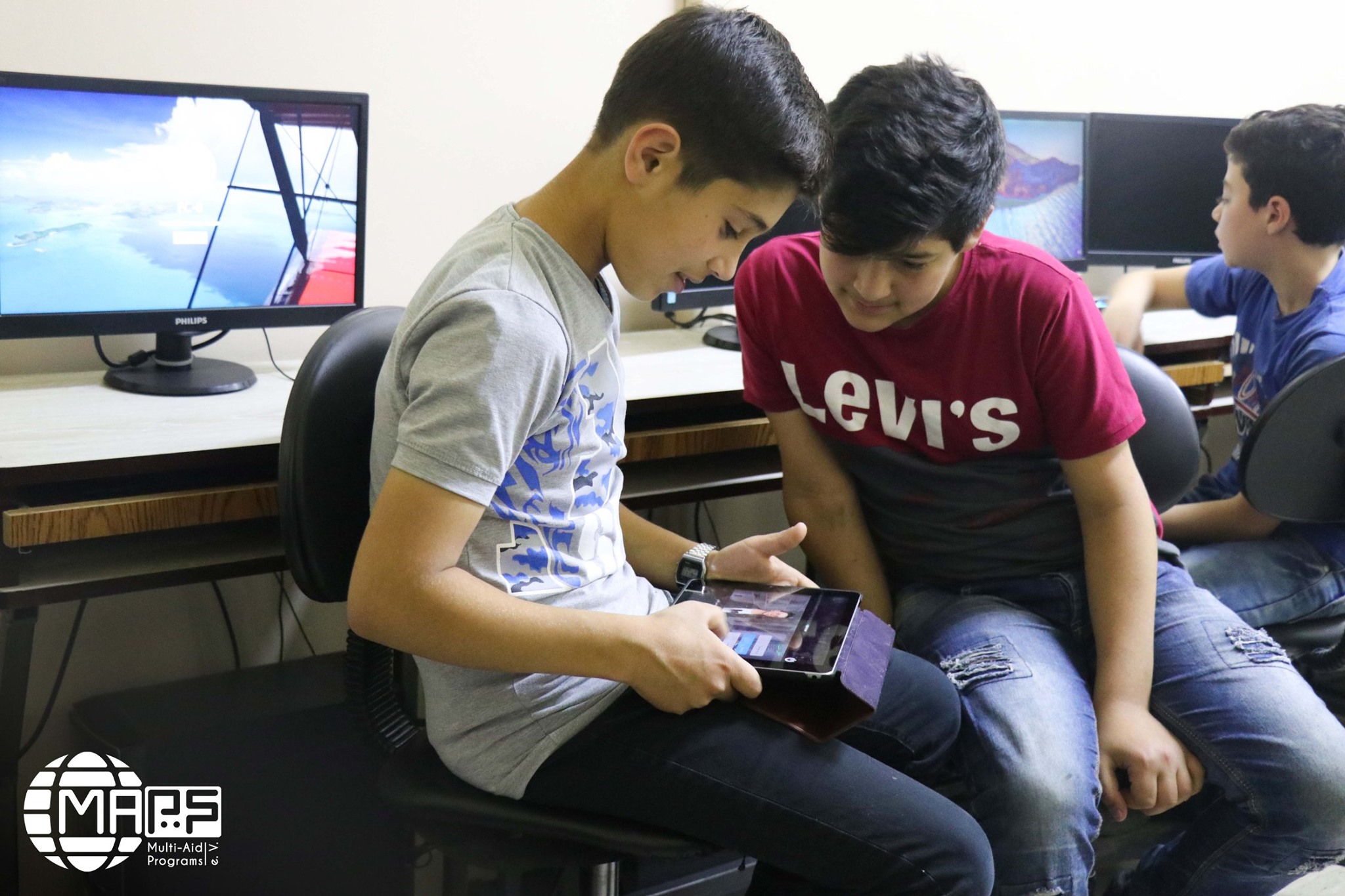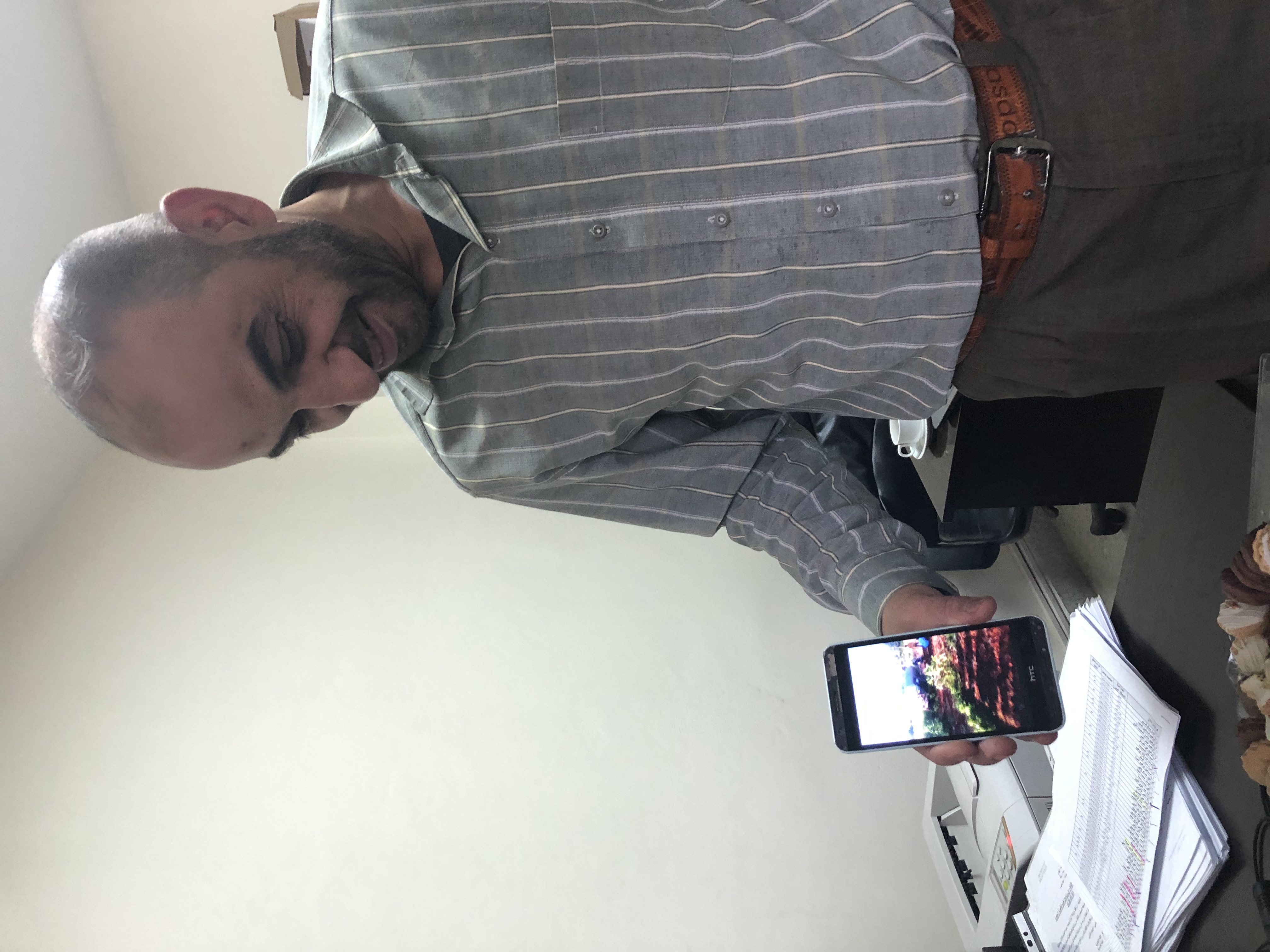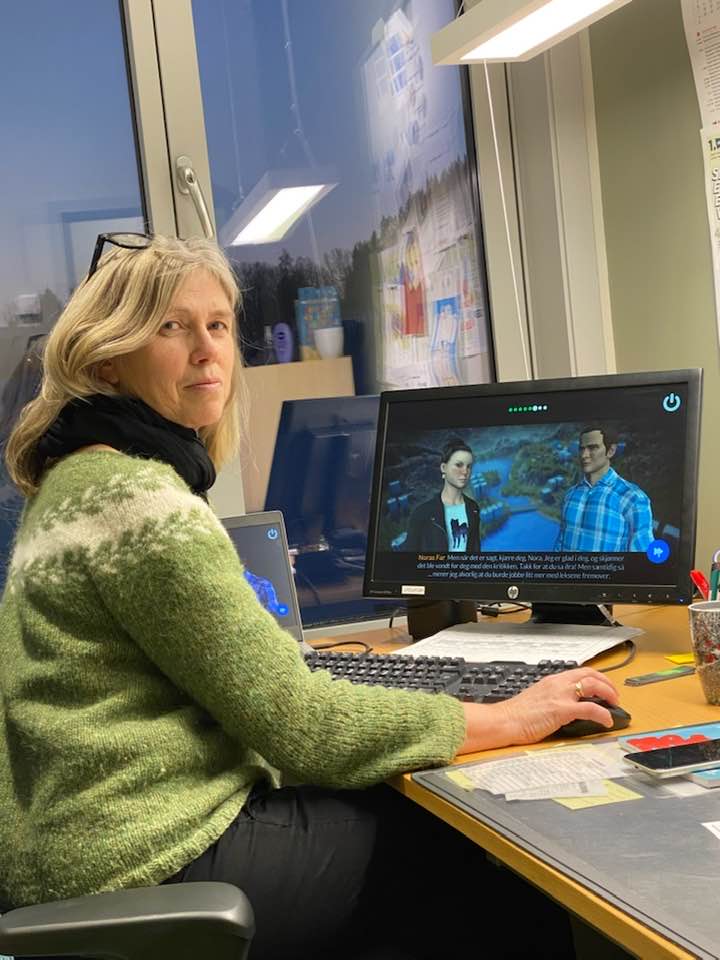THE HAPPY HELPING HAND: IMPROVING LIFE SKILLS. Available in Ukrainian, Arabic, Norwegian, English and French.
A Game for the Social and Emotional
A pioneering cognitive behavior-based game designed to foster social and emotional skills among adolescents.
Game Overview: In The Helping Hand, players embark on a journey to assist virtual friends through various emotional challenges. These challenges include overcoming the fear of public speaking, handling criticism, grappling with suicidal thoughts, and processing traumatic memories. The game's scenarios are carefully crafted to mirror real-life situations, providing players with a safe space to explore and develop coping strategies.
Foundation and Impact: The Helping Hand is grounded in research that highlights the importance of high-quality psychosocial services for the well-being, health, learning outcomes, and economic prospects of young people.
Rewarded by the World Economic Forum and UNICEF
as the winner of the Youth Mental Health Challenge 2022.
Target Audience and Benefits: The primary audience for The Helping Hand is adolescents (12 – 18 years), and it was developed together with adolescents in Lebanon and Norway across economic and religious divides. It is available in Ukrainian, French, Arabic, Norwegian, and English. The game’s design is suitable for individual play, but its impact is amplified when used in group settings as a blended learning tool implemented in groups of adolescents. By navigating the game’s challenges, players can acquire and practice skills in a virtual environment, preparing them to handle similar situations in the real world.
How to use The Helping Hand game
Brief about the game here
You can download the English group facilitator manual in Norwegian here. The Arabic teacher manual is available from the Arabic part of this webpage, the Ukrainian manual: Contact me.
FEEDBACK FROM USERS

This game changes the way you think.
Boy 13 years, Lebanon

The game taught me how to help friends in hard situations.
Boy 16 years, Norway

Many teachers are not accustomed to talking to students about serious and emotional topics. Helping Hands have made such conversations normal. I found that both teachers and students become more comfortable while working on it.
Mr. Moataz, Educational Manager in MultiAid Programs, Lebanon

We use The Helping Hand programs in all our schools. It is helpful for both students and teachers!
Gunnhild Kaldahl, Project Leader, Namsos, Norway
Watch the first responses on the Helping Hand game from Syrian adolescents in Lebanon here.
Watch the launch of the game from June 9th 2020, with the Norwegian Minister of International Development Dag Inge Ulstein, Dr. Fadi AlHalabi from MAPs, Dr Kamel Braham from The World Bank and many more here.
Read about user involvement in developing the game here
Raknes developed the game in app in partnership with Gyldendal (publishing), Attensi (gaming technology), Multiaid Programs, and the Syrian American Medical Association in Lebanon. The project is part of NORAD´s Vision 2030, funded by Innovation Norway. Find the concept note here.
Quotes from Participants:
NEWEST RESEARCH
October 2024: Expanding access to mental health: Evaluating the potential of a severe mental health game for adolescents.
This study examines the feasibility and impact of The Helping Hand, a cognitive behavioral game designed to support the mental health and resilience of Syrian adolescents living as refugees in Lebanon. The intervention combines digital gameplay with group-based discussions and activities, targeting adolescents affected by displacement, war, and poverty.
Using a single-arm, mixed-methods design, the study included 1,234 participants, most of whom were Syrian refugees aged 13–17. Adolescents engaged in weekly 80-minute sessions over a 12-week program, where they explored ten interactive game scenarios addressing psychosocial challenges, such as anxiety, criticism, and bad memories.
Key Findings
1. Significant Improvement in Mental Health and Well-being. Adolescents who participated in The Helping Hand intervention exhibited a notable decrease in symptoms of anxiety and depression, with large effect sizes observed across the total sample and among those with high baseline symptoms. Furthermore, participants reported increased well-being after the program, confirming the intervention's effectiveness.
2. High Feasibility and Acceptance. The intervention was well-received by both adolescents and facilitators, with a retention rate of 95%. Adolescents appreciated the digital game format, which was user-friendly, engaging, and provided a safe space for discussing sensitive issues. Facilitators reported professional growth, including improved communication skills, confidence, and digital literacy.
3. Contextual and Group Differences in Impact. The intervention's impact varied by location, group composition, and gender. Participants in same-gender groups showed greater improvements in anxiety and well-being than those in mixed-gender groups. Adolescents in the more resource-deprived Arsal region experienced stronger benefits compared to those in the Bekaa Valley, highlighting the intervention's adaptability and potential to address diverse needs in low-resource settings.
June 30, 2024, Molde, Norway – A new study titled "The Helping Hand in Ukraine: Feasibility and Potential Impact," authored by Dr. Solfrid Raknes of Molde University College and Tetiana Chorna of HEKS-EPER Ukraine, explores the promising results of a cognitive behavioral intervention aimed at improving the mental health of adolescents amidst the ongoing war in Ukraine.
The study, conducted from April to June 2023 in Odesa, Ukraine, involved ten adolescents participating in a 10-session blended learning group program. Using the game app "The Helping Hand" (HH), the program sought to enhance the coping skills of these young individuals through interactive gameplay and group activities. HH was developed in Norway by Attensi, Raknes, and Gyldendal, supported by Innovation Norway, and rewarded by the World Economic Forum and UNICEF as the winner of the Youth Mental Health Challenge 2022. The Norwegian Health Directorate has funded the translation of the game into Ukrainian. Norwegian Church Aid funded the implementation of the program.
Key Findings:
Implications:
References
The Helping Hand game is based on analog cognitive self-help resources, including “Psykologisk førstehjelp” and “Vaag,” created by Dr. Solfrid Raknes. Below is an overview of studies published on the impact of these materials. Studies focusing on the digital game are marked with an asterisk (*).
Raknes S, Townsend D, Ghostine C, Hammoud M (2024). Expanding access to mental health: Evaluating the potential of a severe mental health game for adolescents. Cyberpsychology, Behavior, and Social Networking https://doi.org/10.1089/cyber.2023.0688
Raknes, S., Al-Khayat, A., & Schuler, B. (2024). Digitalized social and emotional learning and better wellbeing among displaced Syrian adolescents in Lebanon. International Journal of Mental Health, 53(3), 288–315. https://doi.org/10.1080/00207411.2024.2377825
Raknes S, Chorna T (2024)*. The Helping Hand in Ukraine: feasibility and potential impact. Pilot Feasibility Stud 10, 96. https://doi.org/10.1186/s40814-024-01520-5
Wergeland GJH, Haaland ÅT, Fjermestad KW, Öst LG, Gjestad R, Bjaastad JF, Hoffart A, Husabo E, Raknes S, Haugland BSM (2023). Predictors of school-based cognitive behavior therapy outcome for youth with anxiety. Behaviour research and therapy, 169, 104400. https://doi.org/10.1016/j.brat.2023.104400
Townsend D, Raknes S, Hammoud M (2022)*. Psychosocial support for Syrian refugee youth: Comparing delivery modes of a digital mental health game. In S. Moeschberger & L. Miller-Graff (Eds), Psychological Research on Violence Against Children: Towards Building Cultures of Peace, New York, NY: Oxford University Press, p. 272 – 298.
Schuler BR, Raknes, S (2022)*: Impact of digital mental health games with refugees. International Journal of Migration, Health and Social Care, 18, 83-94. https://doi.org/10.1108/IJMHSC-07-2021-0060
Al-Khayat AM (2021)*: Impact of the Happy Helping Hand app for displaced Syrian adolescents. Master’s thesis in International Education and Development Faculty of Education and International Studies Oslo Metropolitan University.
Husabo E, Haugland BSM, McLeod BD, Baste V, Haaland ÅT, Bjaastad, JF, Hoffart A, Raknes S, Fjermestad KW, Rapee RM, Ogden T, Wergeland GJ (2021). Treatment Fidelity in Brief Versus Standard‑Length School‑Based Interventions for Youth with Anxiety. School Mental Health, 3, https://doi.org/10.1007/s12310-021-09458-2
Raknes S (2020)*. The Happy Helping Hand used by Syrian displaced adolescents in Lebanon: a Pilot Study of Feasibility, Usefulness and Impact. White paper.
Husabo E, Haugland BSM, Wergeland GJ, Maeland S (2020). Providers’ Experiences with Delivering School-Based Targeted Prevention for Adolescents with Anxiety Symptoms: A Qualitative Study. School Mental Health, 12(4):757-70.
Haugland B, Håland Å...& Wergeland G. (2020): Efficacy of school-based cognitive behavioral interventions.Effectiveness of brief and standard school-based cognitive behavioral interventions for adolescents with anxiety: A randomized non-inferiority study. Journal of the American Academy of Child & Adolescent Psychiatry. https://www.jaacap.org/article/S0890-8567(20)30001-0/fulltext
Haugland, Raknes, Haaland, Wergeland, Bjaastad, Baste, Himle, Rapee, & Hoffart, A (2017). School-based cognitive behavioral interventions for anxious youth: study protocol for a randomized controlled trial. Trials 18:100. doi:10.1186/s13063-017-1831-9">doi:10.1186/s13063-017-1831-9
Rasmussen LMP, Neumer SP (2020). Kunnskapsoppsummering av tiltaket Psykologisk førstehjelp (2. utg.) Ungsinn.no, 1:1. https://ungsinn.no/post_tiltak_arkiv/psykologisk-forstehjelp-2-utg/
Raknes S, Marki Å, Leborg S, Næss J (2020). Jeg tør! Utprøving av et kort Psykologisk førstehjelps-basert kurs for engstelige skolebarn. Forebygging.no http://www.forebygging.no/Artikler/2020/Jeg-tor/
Raknes S, Dyregrov K, Pallesen S, Hoffart A, Stormyren S, Haugland BSM (2017). A pilot study of a low threshold, low-intensity CBT intervention for traumatized adolescents. Scandinavian Psychologist. 4, e8. https://doi.org/10.15714/scandpsychol.4.e8